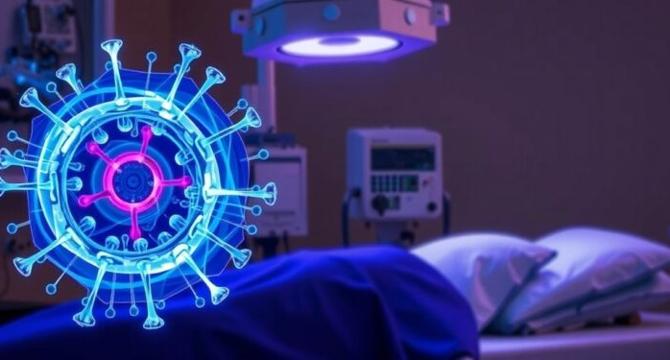Bioengineer
1w
21

Image Credit: Bioengineer
Wyss Institute Collaborates with DARPA-ABC to Advance Understanding of Anesthesia and Develop Safer, Less Monitored Drug Alternatives
- A collaboration led by the Wyss Institute for Biologically Inspired Engineering at Harvard University is working to delve deeper into the fundamental mechanisms of anesthesia and synthesize a novel category of drugs capable of inducing a state mimicking anesthesia, but without the perilous side effects.
- Under a groundbreaking contract with the Defense Advanced Research Projects Agency (DARPA), this initiative boasts a projected investment of up to $18.8 million over three years.
- The researchers are harnessing the expertise from varied fields including molecular and cellular biology, neuroscience, and engineering. They are working to identify new molecular targets crucial for anesthetic mechanisms while leveraging Biostasis compounds developed in prior research initiatives.
- If these agents can be efficiently harnessed, it would revolutionize how anesthesia is administered outside the sterile environments of hospitals, making life-saving interventions available in the field during emergencies.
- The focus on maintaining the body’s ability to control its autonomic nervous system is critical. The implications would expand dramatically, applying not just to military settings but also to civilian emergencies.
- The zebrafish model being utilized allows for the unique examination of neuronal circuits pertinent to anesthesia. By conducting intricate experiments on these models, researchers can pinpoint the molecular interactions activated by anesthetics and identify new therapeutic targets.
- The ability to induce anesthesia-like states outside clinical settings could lead to a paradigm shift in how immediate healthcare is provided during crises. This initiative also aligns with broader healthcare objectives of reducing over-reliance on opioids, thus addressing the growing concern of opioid addiction and enhancing patient care amidst the evolving dynamics of medical treatments.
- By elucidating how specific neural circuits can induce unconsciousness and immobility, the researchers aim to create the first generation of remote-applicable anesthetic drugs.
- This project exemplifies the shifting paradigms in medical research, where a concerted focus on patient-centric solutions can lead to transformative changes in the efficacy and accessibility of healthcare interventions.
- The research not only tempts fate within the realms of radical medical advancements but also inspires hope across various arenas of emergency medicine.
Read Full Article
1 Like
For uninterrupted reading, download the app